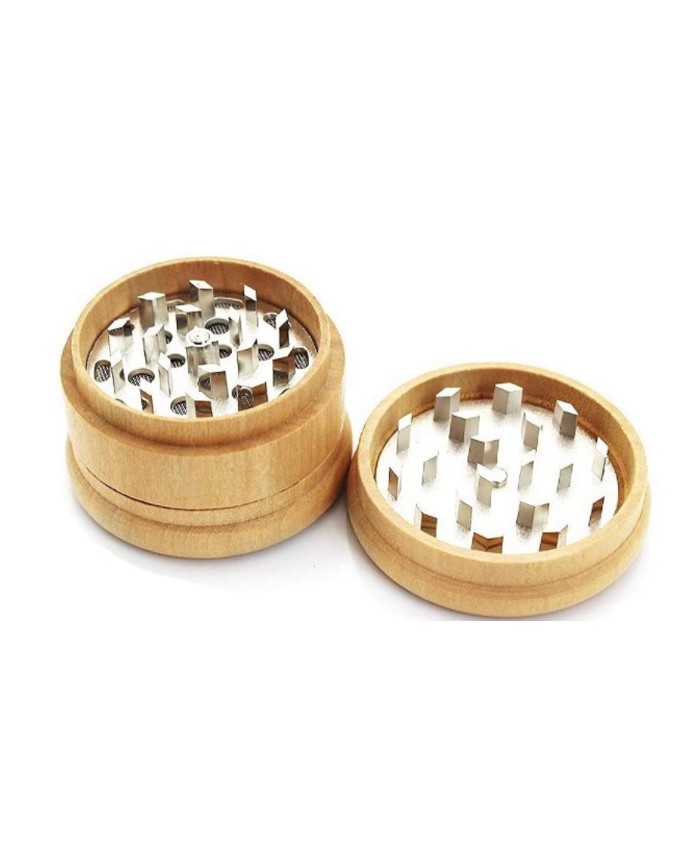Cleaning a wooden herb grinder involves a straightforward process to maintain its functionality and hygiene. Begin by disassembling the grinder into its individual components. Gently tap or brush away loose herb residues, and then follow up with a thorough cleaning using simple household items.

The need to clean a wooden herb grinder arises from the accumulation of herb residues and other impurities over time. As these residues build up, they can affect the grinder's performance, leading to difficulties in grinding and potential contamination of future herbs. A clean grinder ensures a smoother and more efficient grinding process while preserving the quality and flavor of the herbs.
To clean a wooden herb grinder, start by dismantling it carefully. Remove the top and bottom pieces, exposing the grinding teeth and the chamber where the ground herbs collect. Use a small brush, such as a toothbrush or a dedicated grinder cleaning brush, to gently scrub away any loose residues on the teeth and inside the chamber. This preliminary step helps to eliminate the bulk of surface impurities.
Next, prepare a cleaning solution using common household items. Mix a solution of warm water and mild dish soap in a bowl. Dip the brush into the soapy water and continue scrubbing the grinder's components, paying special attention to hard-to-reach areas. The soap helps break down and dissolve any remaining residues while providing a disinfecting effect.
After thorough scrubbing, rinse each component under running water to remove soap residues. It's crucial to ensure that no soap remains, as any leftover residue may affect the taste and safety of the herbs. Once rinsed, pat each piece dry with a clean cloth or allow them to air-dry completely.
The significance of regularly cleaning a wooden herb grinder extends beyond maintaining its appearance. A clean grinder promotes a more efficient grinding process, ensuring that herbs are ground to the desired consistency. It also prevents the accumulation of mold, bacteria, or other contaminants that may compromise the quality of herbs and, in turn, the overall experience of using the grinder.
Regular cleaning not only extends the lifespan of the grinder but also contributes to a healthier and more enjoyable herb-grinding experience. Additionally, a well-maintained grinder reflects the user's commitment to hygiene and quality, emphasizing the importance of cleanliness in the preparation of herbs for consumption.
In conclusion, cleaning a wooden herb grinder involves a simple yet crucial process to preserve its functionality and ensure the purity of ground herbs. Disassembling the grinder, brushing away loose residues, and employing a mild soapy solution constitute an effective cleaning routine. The impact of regular cleaning extends to improved grinding performance, herb quality, and overall user satisfaction. Incorporating this cleaning regimen into your herb preparation routine is a small but significant step towards a more enjoyable and hygienic experience.




Comments
Please Join Us to post.
0